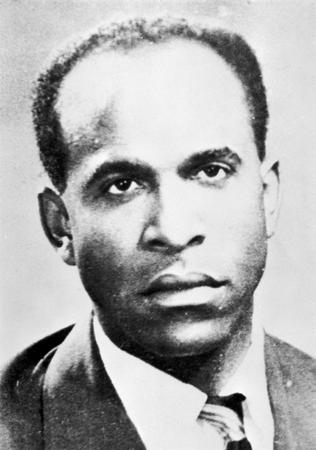|
متوسطه دوم و درس های ناگفته!
|
||
|
فقط از فهمیدن توست که می ترسند |
Frantz Fanon
First published Thu Mar 14, 2019
Born on the island of Martinique under French colonial rule, Frantz Omar Fanon (1925–1961) was one of the most important writers in black Atlantic theory in an age of anti-colonial liberation struggle. His work drew on a wide array of poetry, psychology, philosophy, and political theory, and its influence across the global South has been wide, deep, and enduring. In his lifetime, he published two key original works: Black Skin, White Masks (Peau noire, masques blancs) in 1952 and The Wretched of the Earth (Les damnés de la terre) in 1961. Collections of essays, A Dying Colonialism (L’an V de la révolution Algérienne 1959) and Toward the African Revolution (Pour la revolution Africaine), posthumously published in 1964, round out a portrait of a radical thinker in motion, moving from the Caribbean to Europe to North Africa to sub-Saharan Africa and transforming his thinking at each stop. The 2015 collection of his unpublished writings, Écrits sur l’aliénation et la liberté, will surely expand our understanding of the origins and intellectual context of Fanon’s thinking.F

Fanon engaged the fundamental issues of his day: language, affect, sexuality, gender, race and racism, religion, social formation, time, and many others. His impact was immediate upon arrival in Algeria, where in 1953 he was appointed to a position in psychiatry at Bilda-Joinville Hospital. His participation in the Algerian revolutionary struggle shifted his thinking from theorizations of blackness to a wider, more ambitious theory of colonialism, anti-colonial struggle, and visions for a postcolonial culture and society. Fanon published in academic journals and revolutionary newspapers, translating his radical vision of anti-colonial struggle and decolonization for a variety of audiences and geographies, whether as a young academic in Paris, a member of the Algeria National Liberation Front (FLN), Ambassador to Ghana for the Algerian provisional government, or revolutionary participant at conferences across Africa. Following a diagnosis and short battle with leukemia, Fanon was transported to Bethesda, Maryland (arranged by the U.S. Central Intelligence Agency) for treatment and died at the National Institute for Health facility on December 6, 1961. F
برای دریافت pdf کتاب ارزشمند فرانتس فانون «واپسین دم استعمار»
در بـاره ی انقلاب الـجزایـر و تـلاش مــردم این سرزمیـن برای رهایی از
سلطه ی فرانسه (اینجا) را کلیک کنید.
برچسبها: فرانتس فانون, دکتر نورعلی تابنده, واپسین دم استعمار, انقلاب الجزایر
|
|
